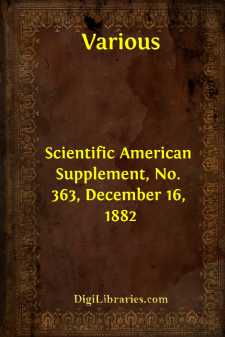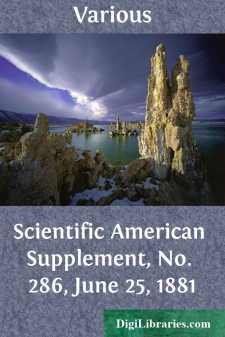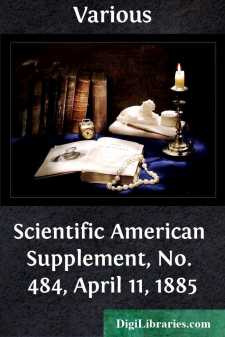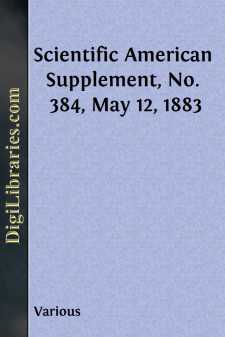Categories
- Antiques & Collectibles 13
- Architecture 36
- Art 48
- Bibles 22
- Biography & Autobiography 813
- Body, Mind & Spirit 142
- Business & Economics 28
- Children's Books 14
- Children's Fiction 11
- Computers 4
- Cooking 94
- Crafts & Hobbies 4
- Drama 346
- Education 46
- Family & Relationships 57
- Fiction 11828
- Games 19
- Gardening 17
- Health & Fitness 34
- History 1377
- House & Home 1
- Humor 147
- Juvenile Fiction 1873
- Juvenile Nonfiction 202
- Language Arts & Disciplines 88
- Law 16
- Literary Collections 686
- Literary Criticism 179
- Mathematics 13
- Medical 41
- Music 40
- Nature 179
- Non-Classifiable 1768
- Performing Arts 7
- Periodicals 1453
- Philosophy 64
- Photography 2
- Poetry 896
- Political Science 203
- Psychology 42
- Reference 154
- Religion 513
- Science 126
- Self-Help 84
- Social Science 81
- Sports & Recreation 34
- Study Aids 3
- Technology & Engineering 59
- Transportation 23
- Travel 463
- True Crime 29
Notes and Queries, Number 43, August 24, 1850
by: Various
Categories:
Description:
Excerpt
NOTES
NOTES AND QUERIES
The history of books and periodicals of a similar character ought to be the object of interest to the readers of this work. The number of works in which answers have been given to proposed questions is not small. Not to mention the Spectator and its imitators, nor the class of almanacs which give riddles and problems, nor mathematical periodicals of a more extensive character,—though all these ought to be discussed in course of time,—there yet remains a class of books in which general questions proposed by the public are answered periodically, either by the public or by the editors. Perhaps an account of one of these may bring out others.
In 1736 and 1737 appeared the Weekly Oracle; or, Universal Library. Published by a Society of Gentlemen. One folio sheet was published weekly, usually ending in the middle of a sentence. (Query. What is the technical name for this mode of publication? If none, what ought to be?) I have one folio volume of seventy numbers, at the end of which notice of suspension is given, with prospect of revival in another form probably no more was published. The introduction is an account of the editorial staff to wit, a learned divine who "hath entered with so much discernment into the true spirit of the schoolmen, especially Thomas Aquinas and Duns Scotus, that he is qualified to resolve, to a hair's breadth, the nicest cases of conscience." A physician who "knows, to a mathematical point, the just tone and harmony of the risings pulses...." A lawyer who "what he this day has proved to be a contingent remainder, to-morrow he will with equal learning show must operate as an executory devise or as a springing use." A philosopher "able to give the true reason of all things, from the composition of watches, to the raising of minced pies ... and who, if he is closely questioned about the planner of squaring the circle, or by what means the perpetual motion, or longitude, may be discovered, we believe has honesty, and we are sure that he has skill enough to say that he knows—nothing of the matter." A moral philosopher who has "discovered a perpetuum mobile of government." An eminent virtuoso who understands "what is the best pickle to preserve a rattle-snake or an Egyptian mummy, better than the nature of the government he lives under, or the economy and welfare of himself and family." Lastly, a man of mode. "Him the beaus and the ladies may consult in the affairs of love, dress, and equipage."
There is a great deal of good answering to tolerably rational questions, mixed with some attempts at humour, and other eccentricities, and occasionally a freedom, both of question and answer, by which we might, were it advisable, confirm the fact, that the decorums of 1736 and of 1850 are two different things.
First, as an instance of a question and answer, which might do as well (if the record be correct) for the present publication.
"Q. We read in our public papers of the Pope's Bull and the Pope's Brief; pray, Gentlemen, what is the difference between them...?












